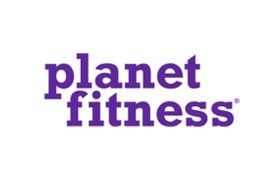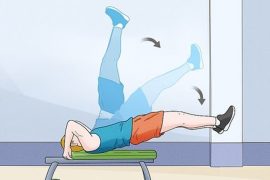Debina Bonnerjee, a mother of two, is on a gradual fitness journey post-pregnancy. She’s facing the common challenge of regaining core strength after childbirth, a journey she acknowledges as one of the toughest aspects of postpartum recovery. According to Dr. Sushruta Mokadam, a consultant obstetrician, rebuilding core strength varies among individuals, influenced by factors like the type of delivery and individual fitness levels. This process typically spans several weeks to several months, underlining the importance of patience and a cautious approach.
Debina’s experience highlights that postpartum fitness isn’t solely about willingness; it necessitates a strategic and personalized approach. To commence your postpartum strength rebuilding journey, it’s crucial to consult a healthcare provider to ensure your safety. Start with gentle exercises like pelvic floor exercises and gradually progress to low-impact activities like yoga and Pilates. Incorporate core-specific exercises and always listen to your body, stopping if you experience discomfort. Proper nutrition, hydration, rest, and patience are key elements in this process, recognizing that postpartum recovery is a unique and gradual path.
Taking to her Instagram Stories, the actor and influencer expressed, “It is the toughest to get back core strength post pregnancy, but you got to do it, Mama! This is showing love to yourself.”
If you too are looking to rebuild your strength postpartum, here’s how to start.
“Remember that every individual’s journey is unique, and it’s essential to prioritise your health and well-being throughout the process. Consult with a postpartum fitness specialist or physical therapist for personalised guidance,” urged Dr Mokadam.
Here are some general guidelines:
Consult a Healthcare Provider:
Before embarking on any postpartum fitness journey, it’s essential to consult with a healthcare provider. They can assess your specific situation and provide personalized recommendations to ensure your safety during the process.
Set Realistic Expectations:
Understand that rebuilding core strength is a gradual process. It can take several weeks to several months, and it’s crucial to set realistic expectations for your progress.
Start Slowly:
Begin with gentle exercises that focus on core engagement, such as pelvic floor exercises and diaphragmatic breathing. These exercises help in reactivating your core muscles, which can be weakened during pregnancy and childbirth.
Gradual Progression:
As you gain strength and confidence, gradually progress to more challenging exercises. Low-impact workouts, such as yoga and Pilates, are good options to consider. Avoid high-impact exercises initially, as they can strain your recovering body.
Core-Specific Exercises:
Incorporate core-specific exercises like planks, bridges, and bird-dog into your routine. These exercises target your core muscles and help in building strength.
Listen to Your Body:
Pay close attention to how your body responds to exercise. If you experience pain or discomfort, it’s essential to stop and consult your healthcare provider. Safety should be a top priority.
Nutrition and Hydration:
Maintain a balanced diet and stay adequately hydrated. Proper nutrition and hydration are critical for your body’s recovery and energy levels.
Adequate Rest:
Rest and sleep are crucial aspects of recovery. Ensure you get enough rest to allow your body to heal and repair itself.
Patience and Persistence:
Be patient with yourself, and don’t get discouraged by any setbacks. Postpartum recovery is a unique journey for every individual, and progress may be slower than expected at times. Stay persistent and committed to your goals.
It’s important to remember that postpartum recovery is a deeply personal and individual journey. What works for one person may not work for another. Consulting with a postpartum fitness specialist or a physical therapist can provide you with tailored guidance and support to help you rebuild your core strength safely and effectively.
Disclaimer:
The information contained in this article is for educational and informational purposes only and is not intended as a health advice. We would ask you to consult a qualified professional or medical expert to gain additional knowledge before you choose to consume any product or perform any exercise.








